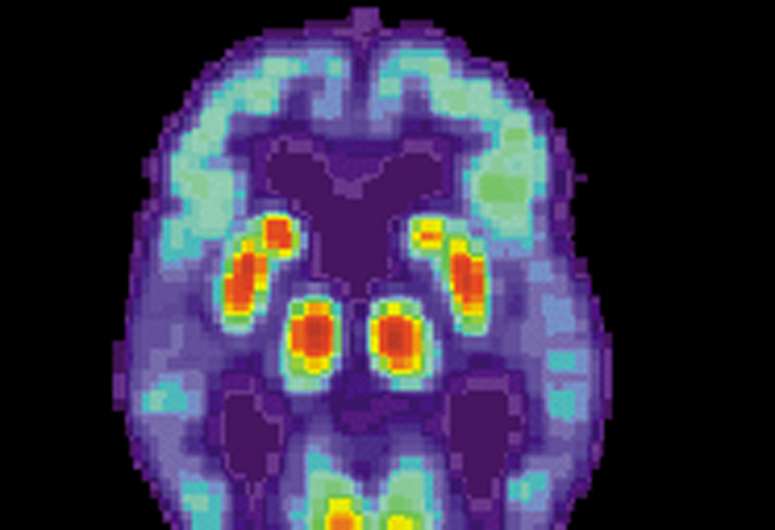This article has been reviewed according to Science X's editorial process and policies. Editors have highlighted the following attributes while ensuring the content's credibility:
fact-checked
peer-reviewed publication
trusted source
proofread
Blood biomarker shows 'great promise' predicting progression to Alzheimer's disease in at-risk population

Neuroscience researchers at Wayne State University published a review article that confirms the usefulness of neurofilament light (NfL) blood levels to predict the likelihood and rate of progression of neurodegeneration in Alzheimer's disease. The review article, "The Potential of Blood Neurofilament Light as a Marker of Neurodegeneration in Alzheimer's disease," is published in the journal Brain.
Blood-based NfL is a minimally invasive and easily accessible biomarker, making it a useful clinical biomarker. Youjin Jung and Jessica Damoiseaux, Ph.D., analyzed existing literature to examine the association between serum or plasma NfL and structural/functional brain imaging measures of neurodegeneration from MRI or PET imaging.
Though NfL levels also increase in typical aging as a non-specific marker of neuronal damage, the levels, as well as the rate of increase, seen in Alzheimer's dementia are higher. Jung and Damoiseaux concluded that research indicates that high blood levels of NfL reflect the severity of atrophy in several overlapping brain regions, especially the medial temporal lobe. Higher serum NfL is also correlated with more severe brain glucose hypometabolism, as well as diminished white matter integrity, in persons on the Alzheimer's continuum.
"The cross-sectional literature indicates that blood NfL shows great promise as a monitoring biomarker to indicate the severity of neurodegeneration in Alzheimer's disease," Damoiseaux said. "It could be especially useful in persons who show Alzheimer's pathology but are at present cognitively unimpaired, or in people who are highly likely to develop Alzheimer's disease due to having the APOE ε4 allele or higher Aβ load."
Longitudinal studies also consistently found significant relationships between blood NfL and atrophy in brain regions vulnerable to Alzheimer's disease pathology. "We found that an increase in blood NfL may precede Alzheimer's disease-related changes in cortical atrophy and may be elevated in the preclinical stages of Alzheimer's disease," Damoiseaux said.
The review of the cross-sectional and longitudinal literature showed that blood NfL levels consistently predicted the severity of atrophy and glucose metabolism in brain areas commonly affected by Alzheimer's pathology.
The work by Jung and Damoiseaux highlights that blood NfL is a useful prognostic marker for predicting the progression of neurodegeneration, as well as being a useful marker to assess the risk that a cognitively unimpaired person with a higher risk for Alzheimer's disease will show abnormal changes in brain structure and function.
Jung warns that there are still knowledge gaps to be filled for the appropriate use of blood NfL as a biomarker. "We need more studies on how blood NfL is related to different aspects of neuronal damage," she said, "and the field should seek to learn more about potential factors that may affect the NfL concentration in the blood."
Jung is a doctoral student in the Behavioral and Cognitive Neuroscience program and a trainee at WSU's Institute of Gerontology. Damoiseaux is an associate professor in the Institute of Gerontology and the Department of Psychology.
More information: Youjin Jung et al, The potential of blood neurofilament light as a marker of neurodegeneration for Alzheimer's disease, Brain (2023). DOI: 10.1093/brain/awad267




















